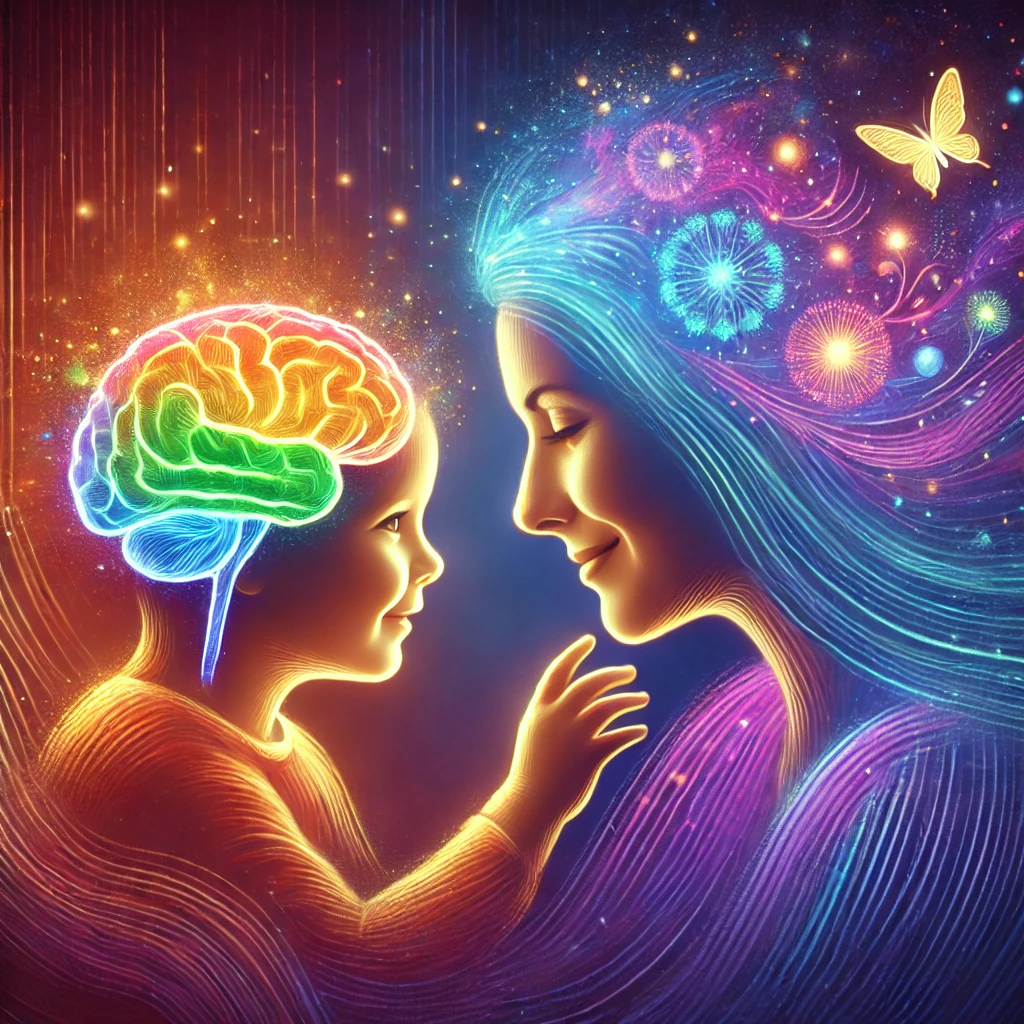The Golden Hour Before Bed: Building Unbreakable Bonds with Your Child
- Swati Gupta
- Aug 9, 2024
- 5 min read
The Golden Hour Before Bedtime: Unlocking the Power of Connection with Your Child
In today’s fast paced world, finding time to connect deeply with our children can be challenging. However, hidden in the daily routine is a precious opportunity often referred to as the "Golden hour"—the hour before bedtime when a child's brain enters a unique state of openness and receptivity. This time is a golden opportunity for parents to foster emotional bonds, nurture their child’s wellbeing, and instill values that can last a lifetime. In this blog, we’ll explore the science behind this critical hour, how it activates the "Yes Brain," and provide practical tips on how to make the most of this time to create an unbreakable bond with your child.
Part 1: Understanding the Golden Hour and Theta Brainwaves
What is the Golden Hour?
The "Golden hour" is the time just before bedtime when your child’s brain begins to transition into the theta state. This is a period of deep relaxation where the brainwaves slow down, creating a space of heightened suggestibility and creativity. This state is similar to what adults experience during meditation or just before falling asleep.
The Science of Theta Brainwaves
Theta brainwaves are typically associated with deep relaxation, creativity, and a heightened ability to learn and absorb information. During the Golden hour, your child's brain is more open to receiving positive messages, learning new things, and processing emotions. This makes it an ideal time for parents to connect with their children on a deeper level, as the brain is more impressionable and receptive.
How the Golden Hour Impacts the Brain
When children enter the theta state, they are more likely to express their thoughts and emotions freely. This openness allows parents to engage in meaningful conversations that can help strengthen the parent child bond. The calm and relaxed atmosphere during this time also helps children feel more secure, making them more willing to listen and engage positively.
Part 2: The Power of the "Yes Brain"
What is the "Yes Brain"?
The concept of the "Yes Brain," popularized by authors Daniel J. Siegel and Tina Payne Bryson, refers to a state of mind where children feel open, resilient, and willing to engage in positive behaviors. When a child’s "Yes Brain" is activated, they are more likely to be cooperative, empathetic, and capable of making positive choices.
How the Golden Hour Activates the "Yes Brain"
During the Golden hour, the combination of theta brainwaves and a calming environment helps activate the "Yes Brain." In this state, children are more likely to respond positively to guidance and are more open to learning and emotional connection. This makes it an ideal time for parents to engage in conversations that promote emotional intelligence, empathy, and resilience.
Why the "Yes Brain" is Important for Development
The "Yes Brain" plays a crucial role in a child’s development. It helps children develop the ability to manage their emotions, build healthy relationships, and approach challenges with a positive mindset. By nurturing the "Yes Brain" during the Golden hour, parents can help their children develop these essential life skills.
Part 3: How to Maximize the Golden Hour
1. Establishing a Bedtime Routine
A consistent bedtime routine is crucial for helping children transition into the Golden hour. A predictable routine signals to your child that it’s time to wind down, making it easier for them to enter the theta state. Routines can include activities like taking a bath, brushing teeth, reading a book, or practicing calming exercises.
2. Engage in Calm, Nurturing Activities
During the Golden hour, it’s important to focus on activities that are calming and nurturing. Reading a bedtime story, talking about the day, or engaging in quiet play are great ways to help your child relax and open up. These activities also provide opportunities for emotional bonding.
3. Use Positive Affirmations
Since the theta state is a time of heightened suggestibility, using positive affirmations can have a lasting impact. Simple affirmations like "You are loved," "You are strong," or "You are capable" can help reinforce your child’s self esteem and confidence.
4. Create a Safe Space for Open Communication
Encourage your child to share their thoughts, feelings, and worries during this time. Creating a safe space for open communication helps your child feel heard and understood, which is crucial for building trust and strengthening your bond.
5. Incorporate Mindfulness and Relaxation Techniques
Introducing mindfulness exercises, such as deep breathing or guided imagery, can help your child relax and prepare for sleep. These techniques also teach your child valuable tools for managing stress and anxiety.
Part 4: The Long Term Benefits of the Golden Hour
Building Emotional Intelligence
The consistent practice of engaging with your child during the Golden hour helps build their emotional intelligence. They learn to recognize and express their emotions, develop empathy, and understand the importance of emotional connections.
Strengthening the Parent Child Bond
Spending quality time with your child during the Golden hour strengthens your relationship. The trust and emotional security developed during this time create a foundation for a strong, enduring bond.
Promoting Positive Behaviour
The positive interactions and guidance provided during the Golden hour can influence your child’s behavior throughout the day. When children feel secure and connected, they are more likely to exhibit positive behaviors and make good choices.
Supporting Healthy Sleep Patterns
A calm, consistent bedtime routine helps regulate your child’s sleep patterns. Good sleep is essential for their overall health and wellbeing, supporting everything from mood regulation to cognitive development.
Part 5: Real Life Stories and Testimonials
Parents Share Their Golden Hour Experiences
To bring the concept to life, include stories and testimonials from parents who have successfully incorporated the Golden hour into their bedtime routines. These stories can highlight the positive changes they’ve observed in their children’s behavior, emotional wellbeing, and the overall parent child relationship.
Childhood Memories of the Golden Hour
Reflect on your own experiences or interview others who can share memories of their childhood bedtime routines. Discuss how these moments impacted their lives and relationships with their parents.
The hour before bedtime is more than just a time to prepare for sleep—it’s an opportunity to connect deeply with your child, nurture their emotional wellbeing, and create lasting memories. By understanding the science behind the Golden hour and the role of theta brainwaves, parents can make the most of this time to activate their child’s "Yes Brain" and build an unbreakable bond. Through consistent routines, positive affirmations, and open communication, the Golden hour can become a cherished part of your day, offering long-term benefits for both you and your child.
So mothers, start incorporating these practices into their bedtime routines and share your experiences in the comments.
Cheers to Joyful Parenting
Swati
Stay Connected:
✨ Subscribe to our channel for more parenting tips and tricks: https://bit.ly/parentingswatiyoutube
✨ Join our community: https://bit.ly/joyfulparentingwhatsapp
✨ Follow us on Instagram for daily inspiration: https://bit.ly/parentingswatiinsta
✨Download Joyful Parenting App: https://bit.ly/joyfulparentingclub
✨Telegram: https://bit.ly/joyfulparentingtelegram
Thank you for reading! Don’t forget to like, share, and comment! 😊
.png)






